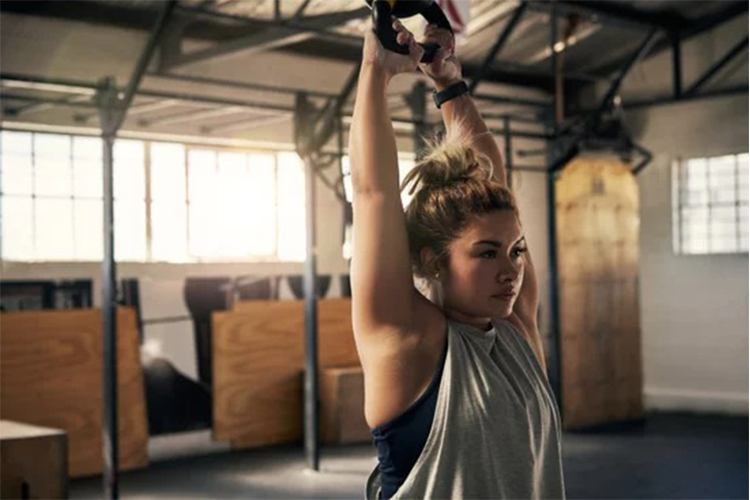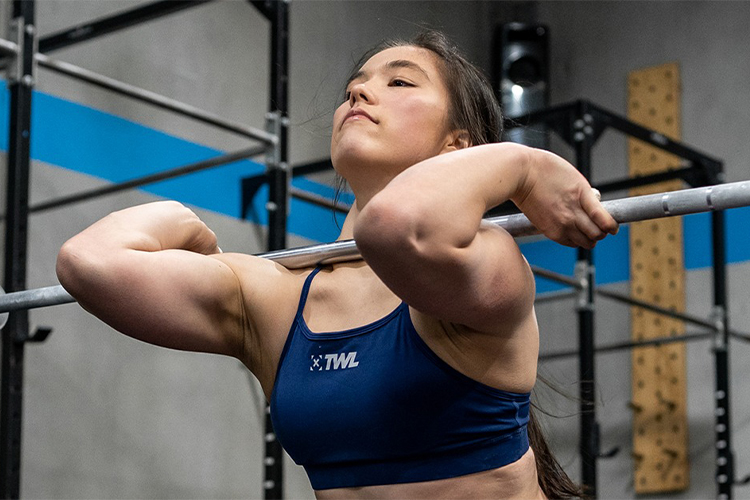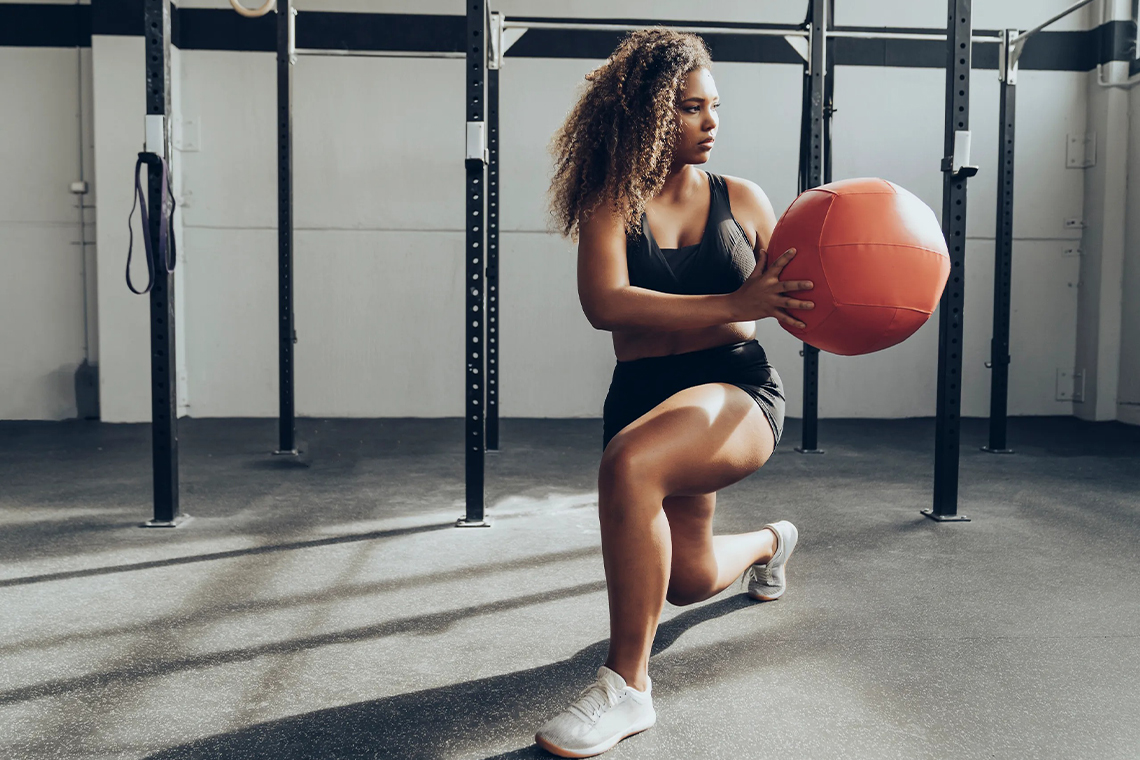Starting a workout routine can be daunting for beginners, but it’s important to remember that everyone has to start somewhere. Getting into shape is not an overnight process, but with the right mindset and approach, it can be a rewarding journey. Here are some tips on how to start working out for beginners.
Set realistic goals
Setting goals is important to stay motivated and track progress, but it’s crucial to set realistic goals. Starting with small, achievable goals is key to building momentum and preventing burnout. For example, committing to working out three times a week for 30 minutes is more achievable than committing to an hour-long workout every day.

Start with low-impact exercises
For beginners, it’s important to start with low-impact exercises to avoid injury and build a foundation of fitness. Low-impact exercises like walking, cycling, and swimming are great options to start with. As fitness levels improve, more high-impact exercises like running and jumping can be incorporated.
Use bodyweight exercises
Bodyweight exercises are great for beginners as they can be done anywhere and require no equipment. Exercises like push-ups, squats, and lunges are effective for building strength and improving overall fitness. As fitness levels improve, weights can be added to increase the intensity of these exercises.
Find a workout buddy
Having a workout buddy can be motivating and make working out more enjoyable. A workout buddy can also provide accountability and support throughout the journey. Finding a friend or family member who has similar fitness goals can be a great way to start.
Mix it up
Doing the same workout routine can quickly become boring and lead to a lack of motivation. Mixing up workouts by trying new exercises, classes, or routines can keep things interesting and prevent boredom. Trying a variety of workouts can also help to target different muscle groups and prevent injury.
Listen to your body
It’s important to listen to your body and take rest days when needed. Rest days allow the body to recover and prevent injury. It’s also important to pay attention to any pain or discomfort during workouts and adjust accordingly. Pushing too hard can lead to injury and setbacks in progress.
Warm-up and cool down
Warming up before a workout and cooling down after is important to prevent injury and improve performance. A warm-up should include some light cardio, like walking or cycling, and some dynamic stretching. A cool down should include some static stretching to improve flexibility and reduce muscle soreness.

Schedule workouts
Scheduling workouts is important to ensure consistency and make it a part of your routine. It’s important to find a time that works for you and stick to it. Scheduling workouts also makes it easier to plan around other commitments and prevent excuses.
Stay hydrated
Staying hydrated is crucial for any workout routine. Drinking water before, during, and after a workout helps to prevent dehydration and improve performance. It’s important to drink water even if you don’t feel thirsty, as thirst is a sign that the body is already dehydrated.
Track progress
Tracking progress is important to stay motivated and see results. Keeping a workout log or using a fitness app can help to track workouts, set goals, and monitor progress. Seeing progress, no matter how small, can be a great motivator to keep going.
Focus on form
When starting out, it’s important to focus on proper form to prevent injury and get the most out of each exercise. Using improper form can lead to muscle imbalances, strain, and injury. If you’re not sure how to perform an exercise correctly, seek guidance from a fitness professional or use online resources to learn proper form.
Don't compare yourself to others
Everyone’s fitness journey is different, and it’s important to focus on your own progress rather than comparing yourself to others. Comparing yourself to others can lead to discouragement and loss of motivation. Instead, focus on your own goals and celebrate your own progress, no matter how small.
Incorporate strength training
Strength training is important for building muscle, increasing metabolism, and improving overall fitness. Incorporating strength training into a workout routine can be as simple as using bodyweight exercises or incorporating weights. Start with light weights and gradually increase as strength improves.

Don't forget about rest days
Rest days are just as important as workout days. Rest days allow the body to recover and prevent overuse injuries. It’s important to listen to your body and take rest days when needed. Rest days don’t have to be completely inactive – gentle stretching or yoga can be a great way to stay active while still allowing the body to rest.
Stay motivated
Staying motivated is key to sticking to a workout routine. Finding a workout buddy, setting goals, and tracking progress can all help to stay motivated. It’s also important to find a workout routine that is enjoyable and fits into your lifestyle. Trying new workouts, listening to music, or using motivational quotes can all help to stay motivated and focused on the journey towards a healthier lifestyle.
Don't be afraid to modify
It’s important to listen to your body and modify workouts as needed. Don’t be afraid to modify exercises to make them more manageable or to prevent injury. There’s no shame in modifying workouts, and it’s better to take it slow and make progress than to push too hard and risk injury.
Mix it up
Doing the same workout routine can get boring and lead to a plateau in progress. Mix up workouts by trying new exercises or classes. Adding variety to a workout routine can challenge the body in new ways and prevent boredom.
Don't neglect cardio
Cardiovascular exercise is important for overall health and fitness. Incorporate cardio into a workout routine by doing activities like running, cycling, or swimming. Start with shorter intervals and gradually increase the length and intensity of workouts as fitness improves.
Fuel the body properly
Eating a balanced diet is important for fueling the body properly for workouts. Eat a variety of fruits, vegetables, lean proteins, and whole grains to provide the body with the nutrients needed for energy and recovery. It’s also important to eat before and after workouts to provide the body with the fuel it needs to perform and recover.
In conclusion, starting a workout routine can be challenging but by following these tips, beginners can set themselves up for success. Remember to start small, listen to your body, stay consistent, and celebrate progress along the way. With dedication and patience, anyone can achieve their fitness goals and enjoy the benefits of a healthier lifestyle.












